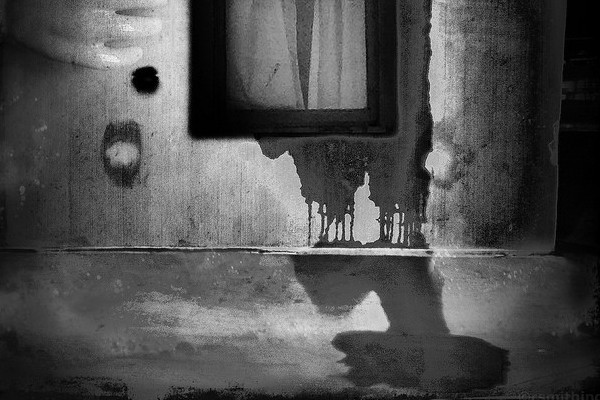You are an assassin.
Some of your patrons call you a killer. Others call you a murderer, hit man, thug, slayer, and all what-nots. They are free to come up with as many names as they like to define who you are and what you do. You don’t care. There is only name you love and care about, the one name that suits you perfectly— assassin.
You’ve been stalking Daniel Otego for six days. It is the longest you’ve stalked a product. You’ve followed him all over town.
You know him in and out now. For three days, you have watched from the other side of the street as the light in his room turns on at exactly 6.14 am. Perhaps he has an alarm set at that exact time every day. You are aware that he leaves his house between 7.30 am and 8 am every morning and picks up the Sun Newspaper at the Cemetery Junction from the same vendor, a fair obese woman, and if the woman isn’t around, he drives away. Some days you watch as he leaves his office for lunch which lasts for one hour, no more, no less. Some other times you watch his boy, a tall lanky young man in his early twenties. You watch him walk out of the office and return with a flask of food. If Daniel leaves to go get lunch himself, he goes to Mr. Biggs and orders either white rice served with tomato sauce or eba served with vegetable soup.
In the evening, Daniel drives straight to the gym by 5.30 pm and changes into white trousers and a blue vest. He stays in there for one hour, no more, no less, and leaves the gym at exactly 6.30 pm every day. You wonder if the gym attendants run a laundry service or if he has a locker in there since he doesn’t go to the gym with his sports outfits. You follow him as he returns home. On his way home, he might stop over for some ice-cream at Citi-Chef or at the Mami Bar for some barbecue or buy some groceries at Emily Lounge. He arrives at his house between 7pm and 7.30 pm every day.
For days you’ve been following Daniel. You have understood the kind of person he is. He smiles while driving and waves a lot at people. You wonder if he knows all the people he waves at, but you remember that he is a medical doctor. Medical doctors know a lot of people. Your father was a medical doctor and a lot of people used to visit. It is what makes their job very difficult.
Daniel Otego lives in a modest bungalow in the government reserved area of the city. The short street is quiet and the nine buildings in it—all three-bedroom bungalows—are identical. They have a long veranda in front. The spacious sitting room, flanked on both sides by one bedroom, has large French windows overlooking the tarred street. There is one more bedroom at the back, close to the kitchen, the central toilet and bathroom. There is a small lawn in front of every apartment. Some of them have no trees, like Daniel’s. But the one adjacent to his has a well-manicured lawn adorned with Pride of Barbados, a bush mango tree, some frangipanis and two orange plants. Some afternoons, you see two boys playing in the lawn and running around the trees. Daniel’s apartment, like the rest in the street, looks deserted except for the nights when the lights would be on and muted sounds of televisions could be heard from all of them. There are power generators in every apartment turned on as soon as electricity goes off—which happens very often, causing the street to be noisy at night.
You sit on your motorcycle and watch. You wonder if the residents have noticed you because today is the first time you are there with a motorcycle. When the lights go off in the sitting room, you begin to walk towards the back of the building.
You are an assassin, and it is not your duty to question your patrons over the assignments they want carried out. The patron who gave you the job runs a non-governmental organization. You are sure the organization serves as a cover for the kind of job he does for the state government. But it is not your duty to question your patrons, as long as they agree on the payment, which for the most part, is fixed. If a President must be killed, you charge the same fee as you would if a toddler in kindergarten was to die. Human beings are the same, as long as you are concerned. Your holy bible says so – everyone is equal before God.
The day you got this job, you were seated in the patron’s office, a plush rectangular room large enough to accommodate over twenty people. He told you that he needed you to do a job for him. A medical doctor was on the neck of some of his friends. He was threatening to divulge information over donor money attracted by the state for malaria eradication. He had mentioned the name of the product before you cut him off.
“Please don’t mention names. It is not my duty to know the name. It is not my duty either to know why a product needs to expire. All I need is an envelope containing the picture of the product to be exterminated, with all the product’s information,” you said.
The patron looked at you, smiled and asked.
“What kind of information… would you love to have?”
“Any information that would help me to recognise and understand the kind of product I am to exterminate—manufacture date, date of expiration, the company that manufactured the product etc, etc.”
“What do you mean company that—”
“Where the product works.”
“How much do you charge, boy?”
You’d stared at the patron for some seconds. “Didn’t your contact tell you about me?”
The patron stared back, his face radiated with smiles. You’ve known over time that people like him are dangerous, extremely dangerous.
“I need all the information, including my money put in an envelope and dropped in front of St. Gregory’s Catholic Church tomorrow by four in the morning. Four AM. The money should be in US Dollars. Hundred dollar bills. Thank you.”
You walked out of the room while he starred, still smiling, but in awe and respect.
The next day, you watched from the window of Room 404 in front of St. Gregory as a Mercedes E-Class drove slowly and stopped beside the church’s gate. A young man stepped out with a huge manila envelope and dropped it beside a stone close to the statue of the Virgin Mary by the church’s gate and drove away. Fifteen minutes later, you came down, walked into the church premises without glancing at the statue and stayed five minutes. When you came out, you collected the envelope and re-entered the church hurriedly and prayed in the chapel till 5am before leaving for your house with an envelope less bulky than the one you’d picked up earlier. You went back into the chapel and retrieved the original envelope by 7am, dropping some dollars into the offertory box as your tithe, for the holy book commands the faithful to offer one tenth of their earnings to God.
The information you have on Dr. Daniel Otego as provided by your patron says that he is a consultant paediatrician with the Lagos State University Teaching Hospital. He graduated with a distinction. He is 48 years old. He is fair, tall with bulky shoulders and two tribal marks on his cheeks close to his nose etcetera etcetera. The envelope contained two photographs of the doctor, three photographs of his car—a 2011 Toyota Camry—and of his apartment.
You amble to the back of Daniel Otego’s three-room apartment. The back door is made of iron. You don’t bother checking it out. You pull out a small dagger from your pocket and use it to unlock the dining room window and slide it open. You bring out your handsaw from your pocket and work on the iron protectors covering the window. The sound from the electricity generators in all the apartments conceals the scraping of your saw. You are patient and relaxed as you saw on two of the protectors for about fifteen minutes and when they give way, you pull and bend them outwards, giving your body enough room to manoeuvre. You find the dining chair. Holding it for support, you streamline your body till your hands find the edges of the chair and you throw yourself in. Your legs hit the tiled floor silently. The chair drags forward and makes a little noise. You stretch yourself, alert and draw out your .45mm automatic pistol from your shoulder holster. You check your electronic watch, it is 11.56pm. You sit on the chair and fix the silencer to the gun. You wait in the darkness.
You never bothered to tell your mother that you are still searching for a job, letting her believe that you got a good job as a mechanical engineer. You certainly never disclosed your murderous profession. Earlier that day, you paid for her six months chemo treatment up front. Since your father died, you have sustained your cervical cancer-ridden mother and two siblings who are studying in the university. You loved your father, but after his death, life became very hard for you. You wonder if the reason why you stalked Dr. Daniel Otego for six days is because of this common link Daniel Otego shares with your father as a medical doctor. You blink hard to erase the memory, to wipe away the feelings. In your line of job there are no feelings. There are no emotions.
You bring out your tiny torch and flash it round the room. The dining room is attached to the sitting room. There are two paintings hanging on the wall. You don’t know much about art, but they look nice. You check your watch again. It is 12am. You put back the small torch into your jacket pocket and retrieve a bigger and more powerful torch from your belt.
You make your way through the kitchen, to the lobby and straight to the door by the right side of the sitting room. You try the doorknob. The door is locked from inside with a bolt. You move back and slam your boot into it. The door throws open. You burst in. Dr. Daniel Otego jumps up in alarm on hearing the loud boom as the door shatters. You flash your torchlight in his eyes and blind him.
“Jesus!” he shouts. You place your index finger on your lips.
The room a perfect square, about 12 by 12 feet. There is a family sized bed by the corner of the room, close to the window. On his bedside table you see a small table clock, a bible, a medical dictionary, a stethoscope and a device for checking blood pressure— you don’t know what it is called. Daniel Otego is dressed in boxer shorts and his upper body is bare. An air-conditioner is humming in the background. You approach him.
“Jesus! Jesus!” he begins to mutter. His hands clenched together.
“Do you want to say some prayers, Sir?”
He could see the gun in your right hand. He is sweating. He looks confused and groggy.
“Please don’t kill me. Please don’t kill me!”
“Shhhh!” You are standing at the edge of the bed now. “Would you want to say some prayers, Sir?”
“Jesus! Holy Mary! Jesus! Holy—”
“Sir, I am here to do my job. It is always my custom to ask my products if they would want to say some prayers—”
“I have money in the house—”
And you shoot.
The bullet enters through his forehead and because you are standing close to him, his blood splatters on your face. You turn instantly to leave, but standing before you is a little boy of about nine years old. An imbecile. Saliva is dribbling from his mouth and his head is bent to his left shoulder. He is starring at you, a smile of despair and confusion on his face. His eyes are empty. You are taken aback because you never knew that there was someone in the apartment. For the three years you have been on the job you have never felt so sick, so scared, so helpless. The child rushes past you. You watch as he goes straight to the bed, climbs onto it and lies beside the dead body.
“Daaaa… Daaa… Daaa…,” he croons and begins to rock the body.
You feel a rush of blood to your brain. Your eyes close. You swoon and slump.
***************
Image by Richard Smith via Flickr
About the Author:
 Obinna Udenwe is a prize winning Nigerian writer. He debut novel, a conspiracy thriller titled Satans and Shaitans, was published by Jacaranda last year. His works have appeared in the Kalahari Review, Tribe-write, Flair Magazine, Kadunaboy and in Literary & Travel Magazine. His debut novel, Satans and Shaitans, was published in October 2014. His short story was featured in the 2014 African Roar
Obinna Udenwe is a prize winning Nigerian writer. He debut novel, a conspiracy thriller titled Satans and Shaitans, was published by Jacaranda last year. His works have appeared in the Kalahari Review, Tribe-write, Flair Magazine, Kadunaboy and in Literary & Travel Magazine. His debut novel, Satans and Shaitans, was published in October 2014. His short story was featured in the 2014 African Roar collection. When he is not travelling all over the world, he shares his time between Abakaliki and Enugu.










Awugo Julius May 20, 2015 13:25
Amazin read...i fuckin love this story. The suspense is sensational and the pace picks up just at the right foot. Talk about the indelible power of fiction, it can make one love what you ordinarily will not talk about.